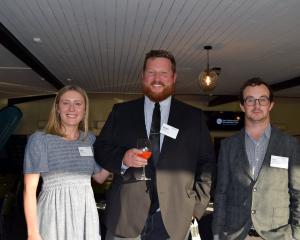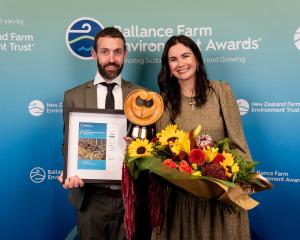
Team trainer and trip organiser Samson Te Whata, of Dubbo in New South Wales, said it was the first time a squad of Indigenous Australians had entered an international wool harvesting competition.
The squad and its support entourage arrived in Queenstown on Saturday.
In the squad were two teams of shearers and woolhandlers.
One team was an "experienced older brigade" and the other was a youth team with limited experience.
Both teams had four competitors — two shearers and two woolhandlers.
All the shearers were male, all the woolhandlers were female and everyone lived in New South Wales.
The squad decided to travel to the Alexandra event because it was the only competition on the international circuit which featured merino sheep, the predominant breed in Australia.
He also wanted the youth squad to be exposed to a high level of wool harvesting skills on show at Merino Shears.
"It’s the example that a merino industry needs to follow in terms of wool harvesting — it’s second to none."
Mr Te Whata worked as a shearer in New Zealand and won the Merino Shears open titles several times in the early 1980s.
He was on the "reserve" bench of the experienced squad and planned to sub himself on, he said.
"Blimmin oath, I can’t go and not shear — goodness."
He was looking forward to travelling to New Zealand.
"Australia is my home-away-from-home but New Zealand is my home and that’s that."
Fewer Indigenous Australians were working in the wool industry than once before but he believed numbers could be increased.
He hoped the youth team coming to Merino Shears was the start of the revival.
Mr Te Whata was training students in wool harvesting at the Indigenous owned and managed organisation, Regional Enterprise Development Institute in Australia.
The squad and entourage were booked to depart New Zealand on Monday.
On the trip, the squad visited southern farms to experience the specialised skills of harvesting merino wool.
He hoped some of the youth team might stay in New Zealand to work.
"We are prepared to change their tickets for them if that happens."
New Zealand Merino Shears president Lane McSkimming, of Alexandra, said the experienced Australian team would go head-to-head against a New Zealand team about 7pm on Saturday.
"One of their shearers includes the current Australian champ — so they mean business."
Mr McSkimming was elected New Zealand Merino Shears president earlier this year, continuing a proud family history with the competition.
His father Murray was president in the 1980s and his grandfather Fred was the first president and the namesake of the McSkimming Memorial Triple Crown trophy.
The Merino Shears was the first compulsory round of the national open shearing circuit.
The trophy, which was celebrating its 50th anniversary, would be given to the circuit winner at the final round of the competition, The Golden Shears in Masterton in March next year.
At Merino Shears, up to 150 competitors were expected to compete at Molyneux Stadium for two days from 8am on Friday.
"The top rural athletes from across the country are competing to win a national merino title," Mr McSkimming said.
The competitors who place first and second in the open shearing and woolhandling grades would be able to represent New Zealand for a transtasman test in Australia next month.
"There’s a bit at stake."
SHAWN.MCAVINUE @alliedpress.co.nz















